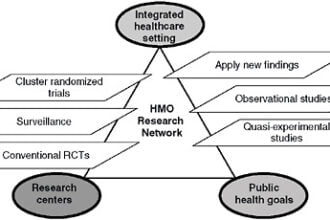 I’ve often said that Meaningful Use and the HITECH Act created false demand for EHRs and has (perhaps irrevocably) harmed innovation in the EHR space by standardizing features and function rather than outcomes and expectations.
I’ve often said that Meaningful Use and the HITECH Act created false demand for EHRs and has (perhaps irrevocably) harmed innovation in the EHR space by standardizing features and function rather than outcomes and expectations.
 I’ve often said that Meaningful Use and the HITECH Act created false demand for EHRs and has (perhaps irrevocably) harmed innovation in the EHR space by standardizing features and function rather than outcomes and expectations. It’s a false demand because it concentrated too much on prescriptive, sometimes useless, and in many cases productivity-killing, functionality instead of focusing on what’s really needed — data interoperability and fostering innovation. John Halamka wrote something similar recently in his Advice to the new ONC chief (highlights in red below are mine, not John’s):
I’ve often said that Meaningful Use and the HITECH Act created false demand for EHRs and has (perhaps irrevocably) harmed innovation in the EHR space by standardizing features and function rather than outcomes and expectations. It’s a false demand because it concentrated too much on prescriptive, sometimes useless, and in many cases productivity-killing, functionality instead of focusing on what’s really needed — data interoperability and fostering innovation. John Halamka wrote something similar recently in his Advice to the new ONC chief (highlights in red below are mine, not John’s):
Rethink the Certification Program – With a new National Coordinator, we have an opportunity to redesign certification. As I’ve written about previously some of the 2014 Certification test procedures have negatively impacted the healthcare IT industry by being overly prescriptive and by requiring functionality/workflows that are unlikely to be used in the real world. One of the most negative aspects of 2014 certification is the concept of “certification only”. No actual clinical use or attestation is required but software must be engineered to incorporate standards/processes which are not yet mature. An example is the “transmit” portion of the view/download/transmit patient/family engagement requirements. There is not yet an ecosystem for patients to “transmit” using CCDA and Direct, yet vendors are required to implement complex functionality that few can use. I completely support the idea of “transmit”, but it should have waited until the ecosystem was mature enough to make it an attestation requirement. Another example is the use of QRDA I and QRDA III for quality reporting. CMS cannot yet receive such files but EHRs must send them in order to be certified. The result of this certification burden is a delay in 2014 certified product availability. Certification should focus on rigorous interoperability testing, using mature standards, in practical use cases, supported by the evidence and experience.
Beautiful and smart advice, as usual, from Dr. Halamka. Most people don’t know about what Dr. Halamka so matter of factly (but quite correctly) stated about CMS in his blog post:
CMS cannot yet receive such files but EHRs must send them in order to be certified.
So the one agency (CMS) with the biggest budgets, the most resources, and the best regulatory authority can’t do anything with the data they’re incentivizing the industry to collect through MU dollars. In fact, none of the data that ONC or CMS want us to collect in our physician’s offices and hospitals as part of the MU program can be put to much use by CMS nearly 3 years after the program began. We’ve given out billions of dollars and even more billions plus, perhaps worse, countless manhours of work are being wasted in data collection without tangible results coming from that collection. Sure, we’re paving the way by having more computers and software and systems in place but at what cost and what ultimate value? I’m all for tech and software (MU’s been terrific for us in the IT industry) but the cost in manpower and lost productivity in clinical and admin areas for health systems and practices may be too high. The intentions were all noble but we took an ossified, low innovation, EHR industry pre-MU and reduced it’s ability and incentives to innovate even more post-MU.
My friend John Lynn and I were talking today about this idea of false demand, MU’s opportunity cost measured in lost innovation, and mostly useless data collection. He reminded me of his recent post The State of the Meaningful Use in which he posed this provocative but useful question to EHR vendors:
If meaningful use were gone (i.e., no more EHR incentive money or penalties requiring meaningful use), which parts of meaningful use would you remove from EHR immediately and which parts would you keep?
In light of both what Dr. Halamka and Mr. Lynn wrote, I think it’s a wonderful question to ask. Whether you’re an EHR vendor or a customer, it’s worth pondering because the answers might be helpful to the new ONC Chief and others charged with promoting EHR sales and use.
(Electronic health record / shutterstock)






